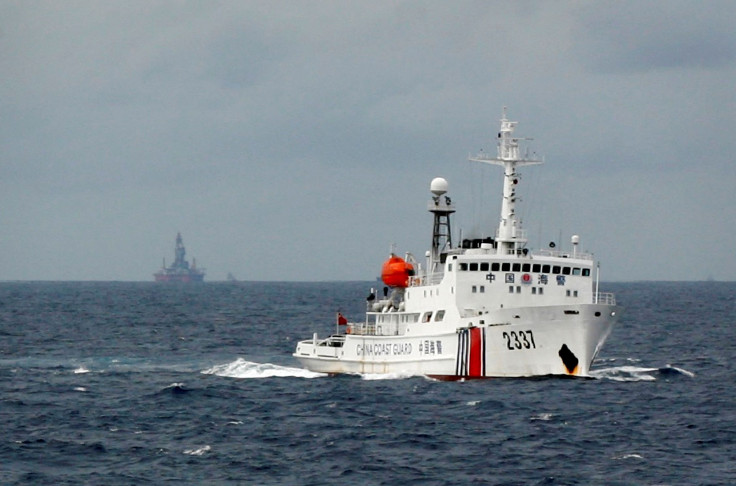Malaysia Undeterred By Beijing's Bullying, Braces For More Intrusions
KEY POINTS
- Since the discovery of Kasawari, China has been sending its vessels to contest Malaysia
- The repeated intrusion has affected the otherwise friendly ties between the two nations
- Kuala Lumpur is determined to exercise its rights within its EEZ in South China Sea
Expressing its readiness to take on Bejing's highhandedness, Malaysia has said that it was expecting more Chinese vessels to intrude into their waters "for as long as" the country develops a gas field in the South China Sea.
The state-backed Petronas is currently developing the Kasawari gas field in Malaysia’s Exclusive Economic Zone (EEZ) in the disputed waters, reported South China Morning Post.
"I think for as long as Petronas is working on Kasawari, we can expect China to be visiting that area perhaps more often," Malaysian Foreign Minister Saifuddin Abdullah was quoted by the news outlet.
"I have lost count of the number of protest notes we have sent to China. We will be steadfast and continue to respond diplomatically to them," he added.
This comes as days after a Chinese survey vessel left Malaysian waters following a protest by Kuala Lumpur. The country, which had maintained a soft stance toward Beijing, had decided to voice their resentment this time, summoning the Chinese envoy.
The repeated intrusion has affected the otherwise friendly ties between the two nations, as reflected in the minister's words. He said Malaysia’s current relationship with China was "very difficult to quantify but is much better now," despite what happened in the South China Sea.
The Kasawari field, first discovered by Petronas in 2011, is estimated to contain 3.2 trillion cubic feet of natural gas resources. It is expected to produce 660 million standard cubic feet per day of gas and 3.5 million barrels of condensate per day.
Beijing has been reportedly sending its Coast Guard vessels to contest Malaysia. A July report by Asia Maritime Transparency Initiative (AMTI) said Beijing was challenging its neighbors' oil and gas activities within their own exclusive economic zones.
Last year, the West Capella oil exploration vessel contracted by Petronas was embroiled in a stand-off with Chinese coastguard vessels.
According to Collin Koh, a research fellow at Singapore’s S. Rajaratnam School of International Studies, China had been keeping a close eye on the Kasawari project from the start. "In recent years, through backchannels, the Chinese have been trying to tell the Malaysians to desist from the South China Sea energy work," Koh told South China Morning Post.
"But it is apparent that Kuala Lumpur has refused to budge. Beijing may have assumed that following the West Capella incident early last year, the Malaysian government would be more circumscribed in proceeding with such activities," Koh said.
Calling the Chinese intrusion into Malaysia’s waters "gunboat diplomacy" aimed at signaling Beijing’s displeasure, Koh said the Malaysian foreign minister’s comment was a more "explicit expression" of the government’s bid to exercise its legitimate EEZ rights over offshore energy resources.

© Copyright IBTimes 2025. All rights reserved.





















